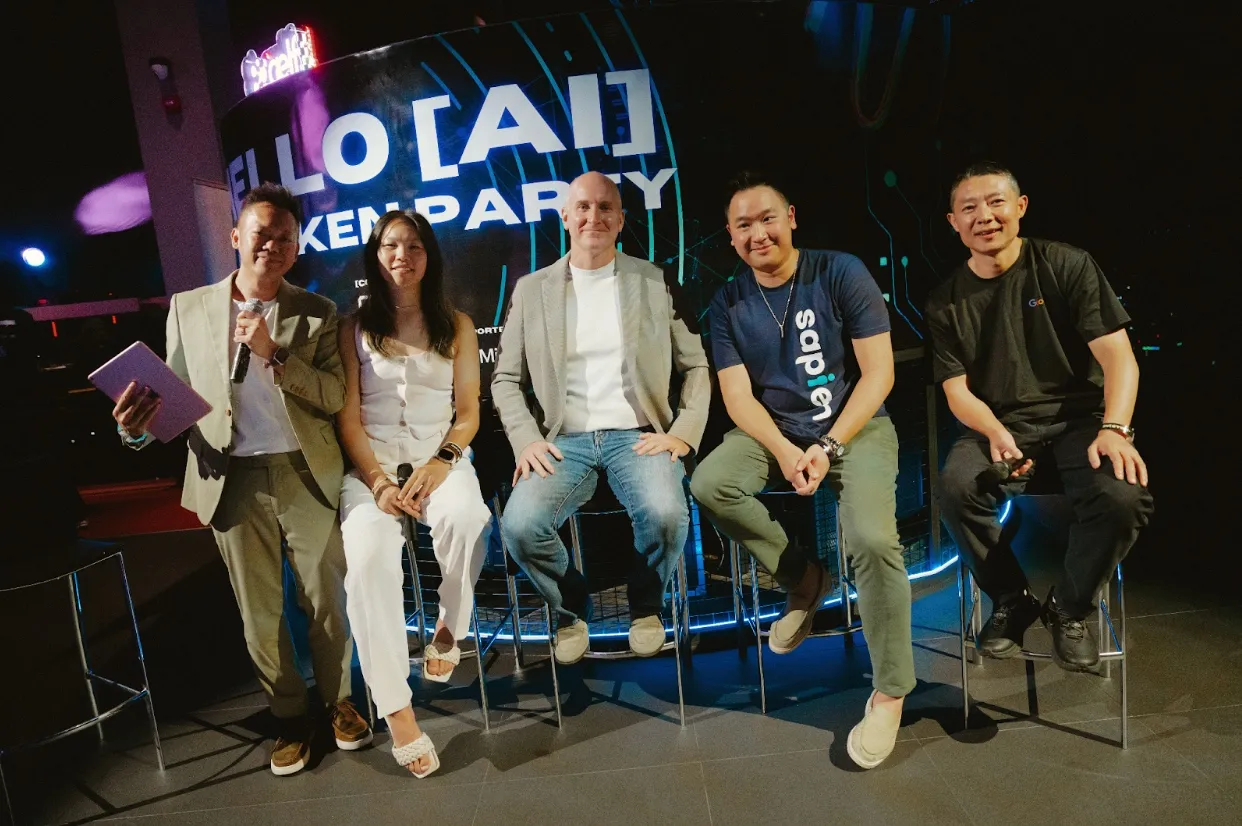There is an intentional push to integrate blockchain technology into every sector and the most fascinating would be the AI -blockchain partnership. Being an ardent student in the emerging and evolving world of artificial intelligence, efforts made by researchers, developers and enthusiasts to better AI appears so appealing.

aelf’s Brian Liang shared their AI-enhanced blockchain ecosystem vision. Source: aelf
At the recent Token2049 event in Singapore, AI and blockchain leaders explored the convergence of these technologies in a side event called "Hello [AI]." The event was hosted by aelf, a blockchain network enhanced by artificial intelligence, and decentralized AI platform Gaia, and it highlighted the growing synergy between AI and blockchain. The "Hello [AI]" gathering, held alongside the Token2049 event, brought industry leaders together to explore cutting-edge developments where these two revolutionary fields converge.
A peep into the key discussions during the Hello [AI] event, reveals robust conversations on AI-powered blockchain applications, decentralized AI systems, and practical solutions for issues like interoperability and AI hallucinations. It wasn’t just a matter of theoretical discussions; the gathering demonstrated real-world applications of these combined technologies, showcasing how their integration could address significant challenges in areas such as data management, security, and operational efficiency. The convergence of these technologies promises to create smarter, more secure decentralized systems capable of tackling complex problems in real-time.
The central theme of the event was the role AI could play in enhancing blockchain's functionalities. Speakers highlighted the advantages of decentralized AI systems, particularly in mitigating concerns like data centralization and security vulnerabilities in traditional AI systems. They also explored the potential of AI to streamline blockchain operations through optimized decision-making processes and automation.
While many view the collaboration between AI and blockchain as the future, the event also acknowledged the challenges inherent in combining these technologies. Issues like interoperability between blockchain networks and AI models were explored in-depth, with discussions surrounding potential solutions. Of particular concern was the issue of "AI hallucinations," a phenomenon where AI systems generate incorrect or misleading information. Industry leaders proposed blockchain as a solution for ensuring transparency and verification within AI-driven systems.

Experts shared insights about AI-powered blockchain apps. Source: aelf
With strong backing and support from some of the world's largest tech firms, including Google Cloud and Microsoft, we can see the industry's interest in these rapidly evolving fields. Their involvement affirms the belief that blockchain and AI can unlock tremendous possibilities for innovation across sectors, including finance, healthcare, and supply chain management.
Another significant highlight of the event was the discussion surrounding AI’s potential to revolutionize the Web3 space. AI's ability to process vast amounts of data quickly and accurately makes it a natural complement to blockchain’s decentralized and transparent infrastructure. The two technologies are seen as pivotal in building more resilient, scalable, and user-friendly Web3 applications that could transform industries worldwide.
Arguably, web3, being the next generation of the internet, is heavily dependent on decentralized networks like blockchain to ensure privacy, security, and autonomy for users. However, with AI’s integration into these networks, the dream of creating intelligent, self-regulating systems becomes more tangible. For instance, AI could manage complex decentralized applications (dApps) by optimizing data flows, securing transactions, and predicting potential system vulnerabilities before they occur.
In sum, the Token2049 event, and particularly the "Hello [AI]" side gathering, highlighted how the collaboration between blockchain and AI could revolutionize the way data is managed, shared, and processed in the future. As this partnership deepens, industries that rely on trust, transparency, and efficiency stand to benefit the most from these technological advances.